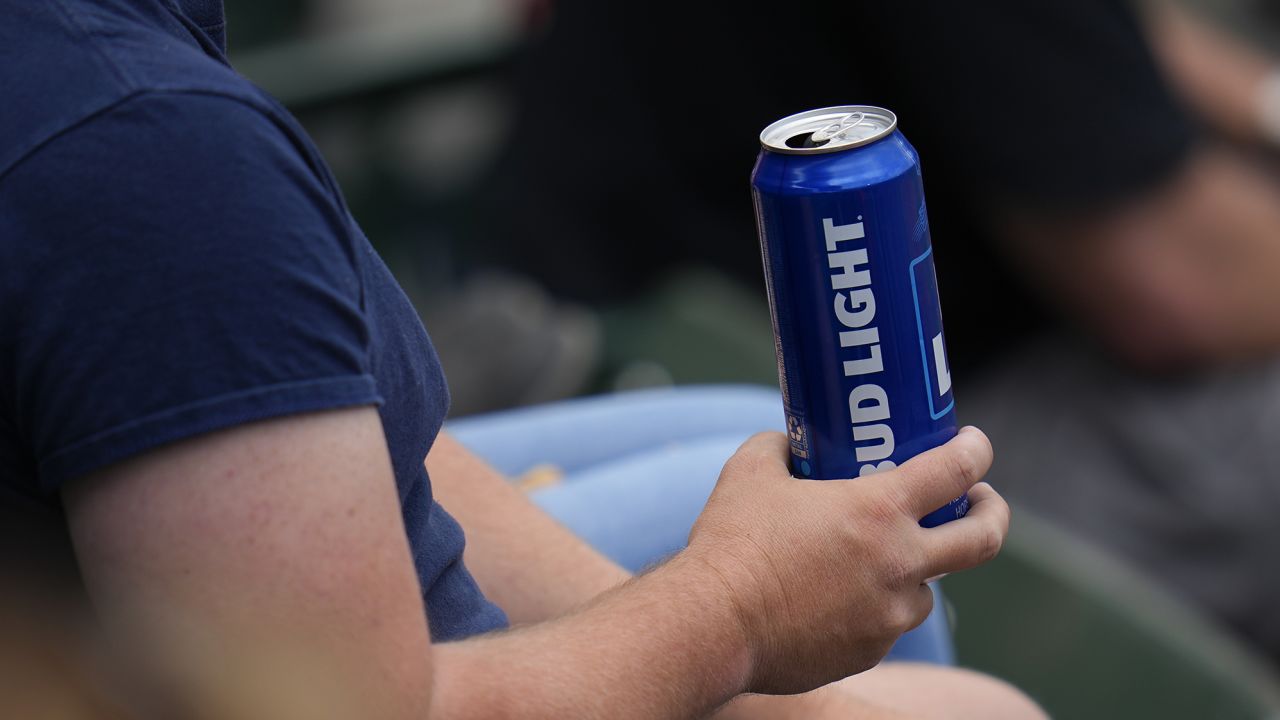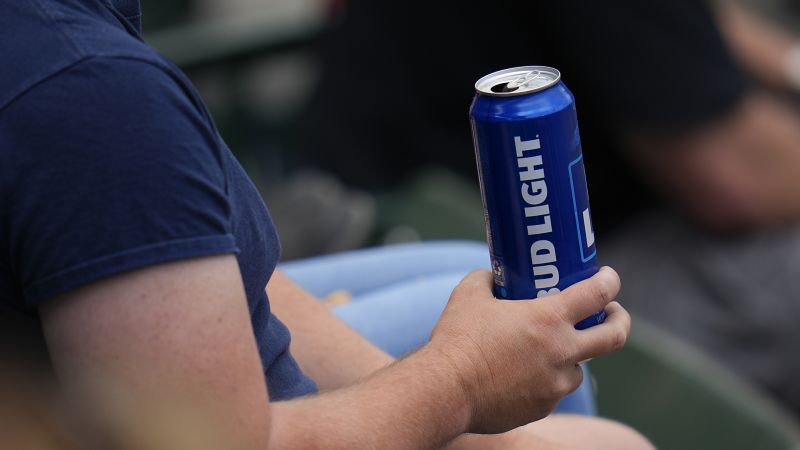Last year, the Human Rights Campaign Foundation gave Bud Light parent company Anheuser-Busch a top rating for LGBTQ+ equality. But because of how the company handled backlash to a sponsored post by Dylan Mulvaney, a transgender woman, it’s now off the list.
The organization informed Anheuser-Busch of its decision in a May letter viewed by CNN, after previously writing to the company in April, criticizing its response. USA Today first reported on the decision.
Bud Light’s sponsorship of an April 1 Instagram post by Mulvaney set off a firestorm of anti-trans backlash and calls for a boycott. The company first responded with a straightforward explanation of its relationship with social media influencers like Mulvaney. But later it released a vague statement from the CEO that failed to offer support for Mulvaney or the trans community, and the company ended up angering pretty much everyone in the process. Bud Light sales dropped in the ensuing weeks.
Kid Rock shoots cases of Bud Light in response to transgender activist’s post
01:40
– Source:
CNN Business
“We never intended to be part of a discussion that divides people. We are in the business of bringing people together over a beer,” A-B CEO Brendan Whitworth said in an April 14 statement titled “Our Responsibility to America.” Soon after the statement was issued, the company said that two marketing vice presidents had taken leaves of absence.

“When we saw the company working with Dylan, that was a good sign. It was a sign of inclusion,” Jay Brown, SVP of programs, research and training at HRC, and the signatory of both letters, told CNN. “What we were really disturbed by was the company’s reaction once the backlash started happening.”
The statement and management decisions “raise considerable concern for the LGBTQ+ community,” Brown wrote in the April letter, which was also seen by CNN.
“In this moment, it is absolutely critical for Anheuser-Busch to stand in solidarity with Dylan and the trans community,” he wrote at the time. “However, when faced with anti-LGBTQ+ and transphobic criticism, Anheuser-Busch’s actions demonstrate a profound lack of fortitude in upholding its values of diversity, equity, and inclusion.”
A-B’s non-commital response comes at a time when trans rights are under fire. Over 400 anti-LGBTQ bills were introduced in state legislatures this year through April 3, according to American Civil Liberties Union, including ones restricting access to gender-affirming care for trans youth. Generally, transgender people are more than four times as likely to be victims of violent crime than cisgender people, according to a study from the UCLA School of Law.
Brown asked A-B to make a public statement in support of Mulvaney and the trans community, offer transgender inclusion training to its executives and reach out LGBTQ+ employees to hear their concerns. He also asked to meet with A-B’s leadership team.
“We are happy to engage in a dialogue,” Brown told CNN. “And if it’s not those three things, to figure out what might make the most sense.”
About two weeks after the first letter, Brown sent another informing the company of the suspension of the 100% rating that had earned it entry to the list, citing a lack of response to those earlier requests. The foundation could reinstate the rating if the company addresses these concerns, Brown noted. A-B has about three months to respond.
“We remain committed to the programs and partnerships we have forged over decades with organizations to drive economic prosperity across a number of communities, including those in the LGBTQ+ community,” an Anheuser-Busch spokesperson said in response to a request for comment for this story.
The foundation uses a number of metrics to rate companies for its Corporate Equality Index, like workplace protections and inclusive benefits. Last year, 842 businesses earned ratings of 100% and can say that they are a “Best Place to Work for LGBTQ+ Equality.” HRC, which advocates for equality for members of the LGBTQ+ community, has been maintaining and updating the index for about two decades. Last year, the foundation removed the Fox Corporation from its list.
For the beer maker, what started as a limited sponsorship of a popular social media figure (Mulvaney made just a couple of Bud Light partner posts before the backlash) has spiraled into a public relations crisis with an impact on sales.
BeerBoard, which tracks sales data, previously told CNN that the 3,000 locations it tracks poured 6% less Bud Light than competitors, including Miller Lite and Coors Light, from April 2 to April 15, a turnaround from previous weeks. Also, Bud Light sales fell 17% in the week ended April 15 compared to the same week in 2022, according to an analysis of NIQ data compiled by Bump Williams Consulting that was provided to the Wall Street Journal.
Sales boycotts can sometimes be offset by buycotts, calls to buy a product in reaction to a boycott. But Bud Light hasn’t gotten the benefit of support for its initial deal with Mulvaney because of its subsequent reaction.
Shares of Anheuser-Busch InBev
(BUD), the owner of Anheuser-Busch, have fallen about 11% since March 31.
During a recent analyst call discussing financial results in the company’s first quarter, which ended before April 1, Anheuser-Busch InBev CEO Michel Doukeris said that it’s too soon to tell the impact of the controversy. During the discussion, he mentioned that Bud Light is just one brand within the company’s broad portfolio, which has not changed its full-year outlook.
— CNN’s Jordan Valinsky contributed to this report.
Read the full article here
